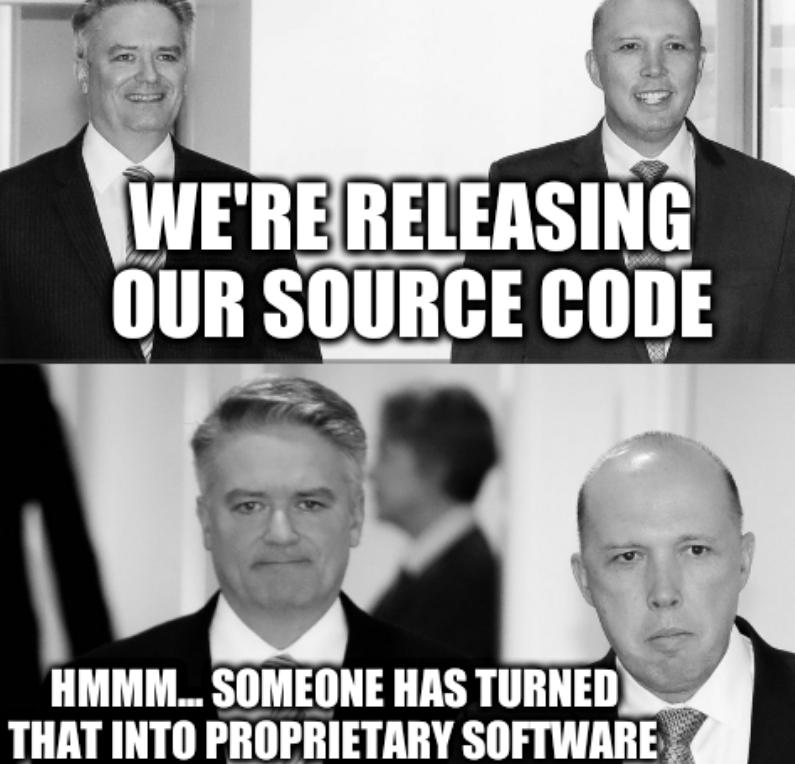

WHEN FUD from Microsoft 'proxies' like Black Duck and WhiteSource isn't enough to keep developers and companies off copyleft (as adopters or releasers) there's GitHub to make decisions or choices for people. RMS (Stallman) warned about this half a decade ago. Now that Microsoft controls GitHub the matter becomes ever more urgent.
"RMS (Stallman) warned about this half a decade ago. Now that Microsoft controls GitHub the matter becomes ever more urgent."With some exceptions, like EA choosing GPLv3 for its latest code release, we too often hear about companies and governments* "going open" by basically shelving source code in the proprietary software trap of Microsoft (GitHub), often under a so-called 'permissive' licence (which means Microsoft can take it, change it, give nothing back). This is the wet dream of proprietary software giants. Free code! Not free as in freedom. Free as in "people out there will fix bugs for us" and "give us code" (to improve our proprietary software that these people will later need to pay for). This 'labour farming' practice has long been encouraged by Microsoft and others.
If you do not support these sorts of scams, delete GitHub (well, technically it's not truly possible). Then, choose licences Microsoft et al hate the most. Those licences are most effective at putting an end to proprietary software. That's why they hate such licences so much. The InnerSource Commons (ISC), run by a Bill Gates lackey, shows us what they're pushing for; the person previously (at Sun Microsystems, now part of Oracle Corporation) crafted a licence whose goal was to be as incompatible as possible with GPL**. Black Duck was, by its own admission, created by a Microsoft guy to discourage and exterminate GPL. Those aren't even secrets; it's all in the public domain. ⬆
_____
* The Government of India now gives Microsoft control over its mass surveillance tool, as covered hours ago in [1, 2].
** As per Wikipedia: "Simon Phipps (Sun's Chief Open Source Officer at the time), who had introduced Cooper as "the one who actually wrote the CDDL",[19] did not immediately comment, but later in the same video, he says, referring back to the license issue, "I actually disagree with Danese to some degree",[20] while describing the strong preference among the engineers who wrote the code for a BSD-like license, which was in conflict with Sun's preference for something copyleft, and that waiting for legal clearance to release some parts of the code under the then unreleased GNU GPL v3 would have taken several years, and would probably also have involved mass resignations from engineers (unhappy with either the delay, the GPL, or both—this is not clear from the video). Later, in September 2006, Phipps rejected Cooper's assertion in even stronger terms.[21] Similarly, Bryan Cantrill, who was on Sun at that time and involved in the release of CDDL licensed software stated in 2015 that he and his colleagues expected in 2006 the fast emerge of CDDL licensed software into the Linux ecosystem and the CDDL being not an obstacle.[22]"